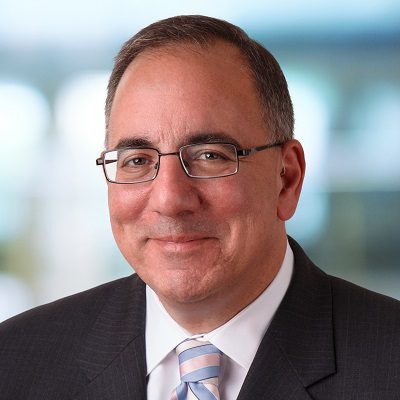
Pat Tamburrino serves as the vice president of the health and civilian market at LMI and is a Pinnacle Award finalist in the Healthcare Industry Executive of the Year category. Here, he shares a turning point in his career, how he helps shape the next generation of GovCon leaders, proud career moments, rules leaders should break more often and more.
What has made you successful in your current role?
My career as a federal executive gives me a good understanding of what the agencies I support are challenged with every day. I have seen a lot of these problems and realize the pressure executives face in the federal space. I can use this knowledge to help executives in two ways.
First, I can come up with solutions that are more tuned to their needs and more practical for their positions. Second, I have an amazing team at LMI, and each member has a superpower that I leverage to furnish the best consulting services to the client. I believe in empowering people and letting them work at their highest level of ability.
What was a turning point or inflection point in your career?
As a career civil servant, I wanted to be a member of senior executive service by the time I was 40, which I achieved. Something I did not think of before was the enormous amount of responsibility I carried for the agency. I had to learn how to operate at a totally new level of efficiency and effectiveness. It was a “ be careful what you wish for” moment, but I loved every second of it.
I had the ability to make decisions, influence how the agency ran, make meaningful government policy, interact at the congressional level and much more. I would not trade that experience for anything.
How do you help shape the next-generation GovCon leaders?
I do a lot of mentoring and a tremendous amount of informal coaching, which helps people find the answer from within themselves. This is extremely powerful. I did not have that when I was starting out because mentoring and coaching was were not common practices. I try to share everything I learn and understand with those I work with to give them an edge and make them better at this craft.
What’s one key thing you learned from a failure you had?
The biggest lesson I learned from a failure is this: when i t is going bad, you need to let the organization you are a part of know that things are going south and be clear about why they went sideways. Not acknowledging the challenge or error is wrong. You must acknowledge it and be transparent.
In addition, I learned that no one person has the solution to the problem. It takes a whole team of people to get to a solution. You must get beyond your own point of view and sense of pride to leverage everyone on the team.
Which rules do you think you should break more as a leader?
The rule that I was taught is that it is better to ask for forgiveness than for permission. If you’re put in charge of something, the expectation is that you’ll lead, lean forward and meet the challenge within all moral and ethical boundaries. No one expects you to ask permission for everything you are going to do. You just need to execute, be bold and be self-confident.
Looking back at your career, what are you most proud of?
As a civil servant, I had the privilege to work directly for President Barack Obama to redesign the Veterans Transition Assistance Program, which helps service members transition from military service to civilian employment. John Gingrich (now a retired Veteran Affairs executive) and I reengineered the program, which was exciting for me.
By revamping the program, we had a hand in ensuring the men and women serving our country would receive all the benefits they were entitled to as they translated their military experience to the civilian environment. It was a very motivating and rewarding experience.
What’s your best advice for aspiring leaders who want to follow in your footsteps?
Own the room. Go into a meeting and project confidence. Be prepared and be ready to defend your position. Be a good student and ask good questions. Be a good colleague. Be civil and lend a helping hand. Do not stand on anyone’s shoulders to be successful.

